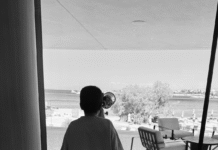You work hard to build up your pension, so it’s important to make sure your money is safe. Find out more about how your situation can depend on the type of pension you have, and where you can get more help if you need it. Here Our CEO, Louis-Rhys Harvey, discusses the risks and potential pitfalls.
Should I be worried about my pension?
With many employers and companies going out of business, current savers and retired people can be left unsure about where they stand with their pension.
The situation depends on whether you have a defined benefit pension scheme or a defined contribution scheme.
Is my defined benefit scheme safe?
This is a type of pension that will pay you a retirement income based on your salary and how long you’ve worked for your employer.
Defined benefit pensions include ‘final salary’ and ‘career average’ pension schemes. These are generally now only available from public sector or older workplace pension schemes.
This type of scheme is protected by the Pension Protection Fund (PPF).
The PPF might step in and pay members retirement income as compensation if employers become insolvent and the scheme doesn’t have enough funds to pay their benefits.
The compensation might not be the same as if the employer hadn’t gone bust. The level of protection depends on whether you had passed your normal pension age when your employer became insolvent.
If you were over your normal pension age or started receiving your pension early due to ill-health, you’re entitled to receive a full pension from the PPF. Anyone receiving a survivor’s pension, such as a widows/widowers pension, is also fully protected.
If you were under your normal pension age, you’re entitled to receive a pension of 90% of the amount you’ve built up when your employer became insolvent. This is also subject to an upper cap set by the government.
The PPF might step in and pay members retirement income as compensation if employers become insolvent and the scheme doesn’t have enough funds to pay their benefits.
The compensation might not be the same as if the employer hadn’t gone bust. The level of protection depends on whether you had passed your normal pension age when your employer became insolvent.
If you were over your normal pension age or started receiving your pension early due to ill-health, you’re entitled to receive a full pension from the PPF. Anyone receiving a survivor’s pension, such as a widows/widowers pension, is also fully protected.
If you were under your normal pension age, you’re entitled to receive a pension of 90% of the amount you’ve built up when your employer became insolvent. This is also subject to an upper cap set by the government.

Pensions regulated by the FCA
The Financial Conduct Authority (FCA) is responsible for regulating the conduct of retail pensions. This includes personal pensions you might set up yourself and group personal pensions set up within your workplace.
This includes stakeholder pensions, self-invested personal pensions, Additional Voluntary Contributions (AVCs) and annuities. These are ‘contract-based’ schemes where a contract exists between you and the provider.
Situation if a sponsoring employer goes bust
If you’re in one of these pensions and it was set up by your employer who has since gone bust, your money will be safe. This is because the pension assets are held in custody for you, by the pension provider.
Situation regarding the investment of your money
The value of your pension savings can still be affected by changes in the investment markets at any time, as they can go up and down daily. The value of your pension may therefore go up and down too. This is investment risk, a normal part of investing.
There is still a risk that the investment companies your money is invested with could go bust. In this kind of pension, the provider should have committees in place to monitor and govern the investment options and can take action to change, stop and remove investments in the pension if necessary.
However, they can’t guarantee the security of your account. And these measures don’t fully protect your pension against every event.
If something happened to an investment provider, you would normally be able to apply for compensation from the Financial Services Compensation Scheme (FSCS).
Generally, this means you’re protected up to £85,000 for each institution your money is invested. This includes money you’ve invested in your pension as well as any other savings accounts. It also includes money you have in cash with the same institution such as a bank account.
The FSCS doesn’t generally cover performance losses, such as if the shares you invest in go bust, although they can cover poor investment management.
Situation if the pension provider your money is held with, and overseen by, goes bust
If something happened to the pension provider overseeing your money, you would generally be able to claim compensation from the FSCS.
The FSCS aims to make sure you get back 100% of any loss.
Where to go for more help
If you’re in a workplace pension, always contact your employer first if you have concerns about your workplace pension scheme.
You can also talk to your pension provider or administrator. This should be your first port of call for pensions you’ve set up yourself.
However, if you would also like to speak to an independent third party, or you just need more information, you can call us.
Should I seek professional financial advice?
Planning how you’ll fund your retirement requires a great deal of thought so you’ll have peace of mind that you’ve made the best possible decision. It’s always best to take financial advice first. A financial adviser can help you decide which route suits your needs and goals, so you can look forward to the retirement you’ve always dreamed of.
Berkeley Square Associates can assist with both pension and property investments.
 Please speak to Berkeley Square Associates if you’d like to find out more about investing through an ISA or Pension. Louis-Rhys Harvey, CEO. Check his website for more information and can be contacted on lrh@bsqa.uk, 0208 1592306.
Please speak to Berkeley Square Associates if you’d like to find out more about investing through an ISA or Pension. Louis-Rhys Harvey, CEO. Check his website for more information and can be contacted on lrh@bsqa.uk, 0208 1592306.
Read more here.





